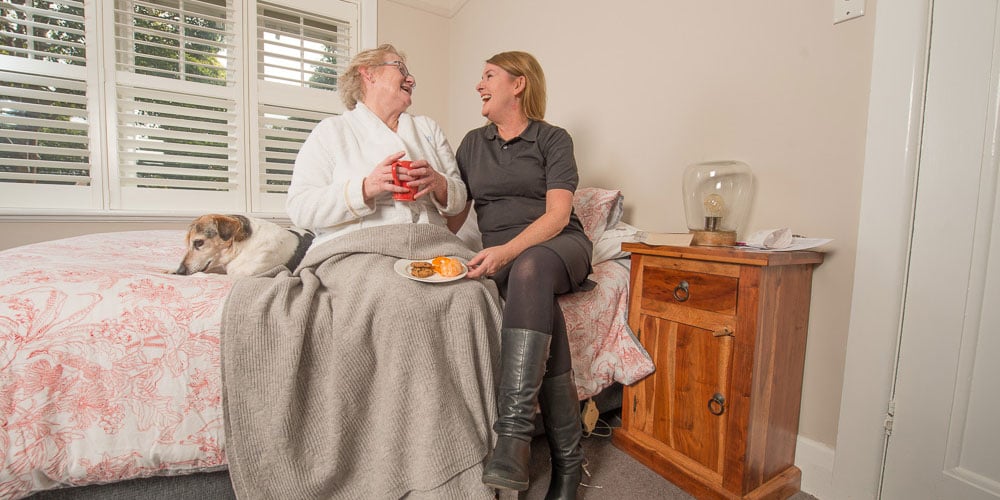Caring for someone you love, is one of the most meaningful and generous things a person can do, but it is certainly not without its challenges. The relationship takes on a brand-new dynamic especially when it involves an ill or elderly parent. There’s the obvious emotional angst that comes with having to see your parents go through their ill-health, but it’s also not without its fair share of physical, emotional and even financial strain on you.
The experience can feel particularly overwhelming if you’ve gone from having a straightforward life to that of a carer for a loved one, overnight. Often we don’t even contemplate what care for our parents would look like, until an unfortunate circumstance hits, like sudden illness or injury. Sometimes becoming a carer can creep up on you as your parents’ needs increase over time. It can be scary and stressful to suddenly find yourself responsible for your own parent.
If you’re new to caregiving and are looking for ways to make things work without getting burnt out, we’ve got a few tips and ideas that can help.
1. Make time for your well-being too
As a carer, it is not uncommon to experience signs of fatigue, irritability, depression, anxiety, lack of focus and symptoms of emotional distress. Act on these warning signs early. Although your primary goal is to give care to another, it is impossible to do so without first taking care of your own health. Consider activities like walking, exercise, mindful meditation to relax. A UCLA study, in fact, reveals that meditating for 12 minutes every day can significantly help improve the mental health of caregivers. Even talking to a friend or co-worker about your feelings and frustrations can work to reduce stress actively. Carers Victoria has some valuable information for carers on how to look after yourself.
2. Consider respite or in-home care
Many people find themselves having to balance being a carer with managing a career, children, partners and a social life. While caregiving can be a very rewarding experience, it’s important to apply a sustainable approach and take breaks periodically. Today, in-home aged care and respite services are available to help you with a range of caregiving activities from bathing, meal preparation, domestic support and beyond. This can help you take time off to tend to your other commitments or simply help you relax. Even if it’s a few hours every day or a few weeks every year, you shouldn’t be feeling guilty about keeping your life in balance.
Your parent may even be eligible for funding from government to help them stay at home with the support of a carer. The Home Care Package funding program may provide a family carer with an extra pair of hands to lighten the load of caring for their loved one.

3. Support groups can help
Support groups can do a lot to help alleviate the stress of caregiving. It’s comforting to know that you’re not alone and that there are so many like you living through the same day-to-day challenges. The other good thing about support groups is being able to share and get real-life practical advice from fellow carers.
Lastly, take time to reminisce and remember the good times spent with your parents. Reflecting on happier times and moments can give you the strength and peace of mind to tide through these testing times. Just because you are their carer, doesn’t mean they can’t still be your sounding board. Try to keep some elements of your relationship with your parent going.
And, if you’re looking for in-home care to help you care for a loved one, Absolute Care & Health can help! Call us on 03 9978 9140 today.



